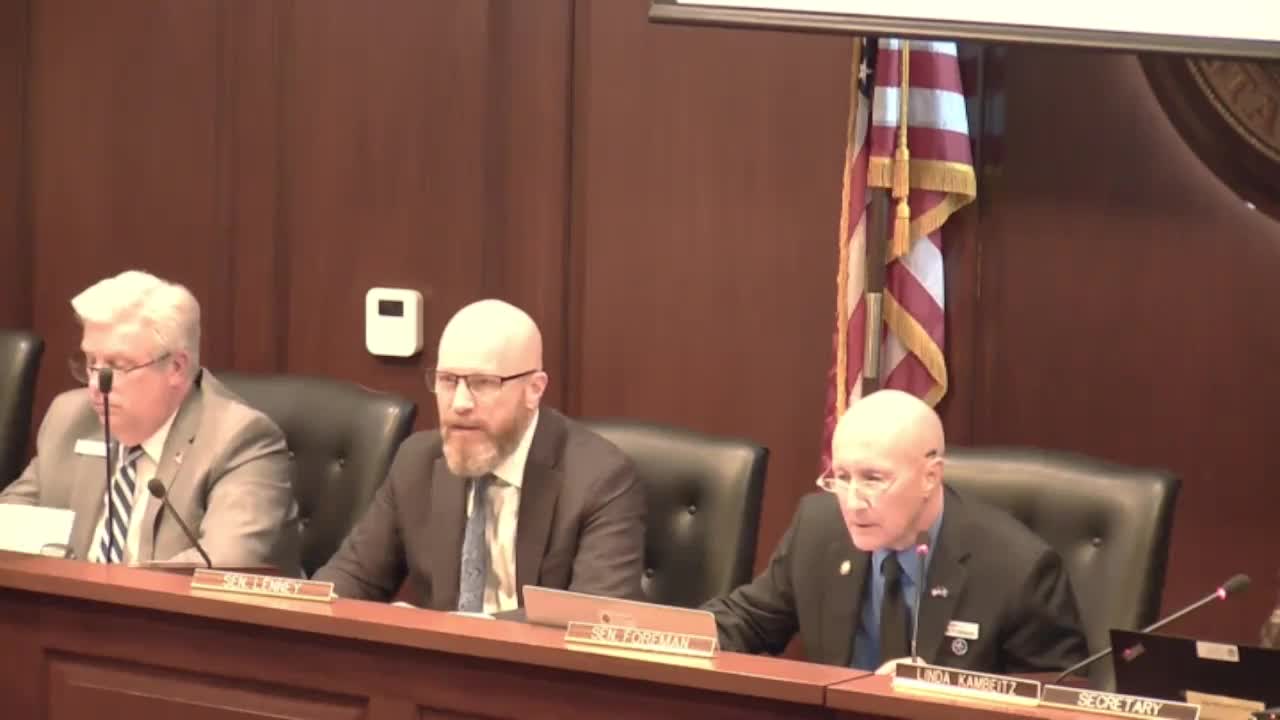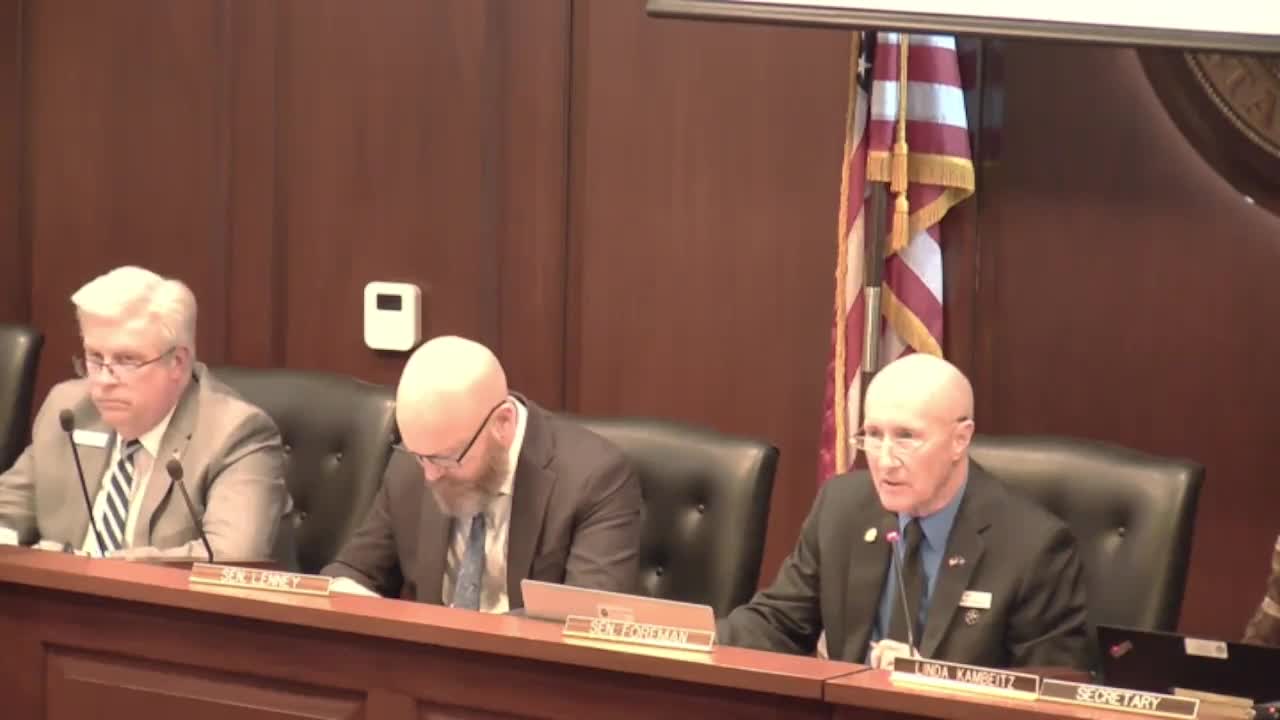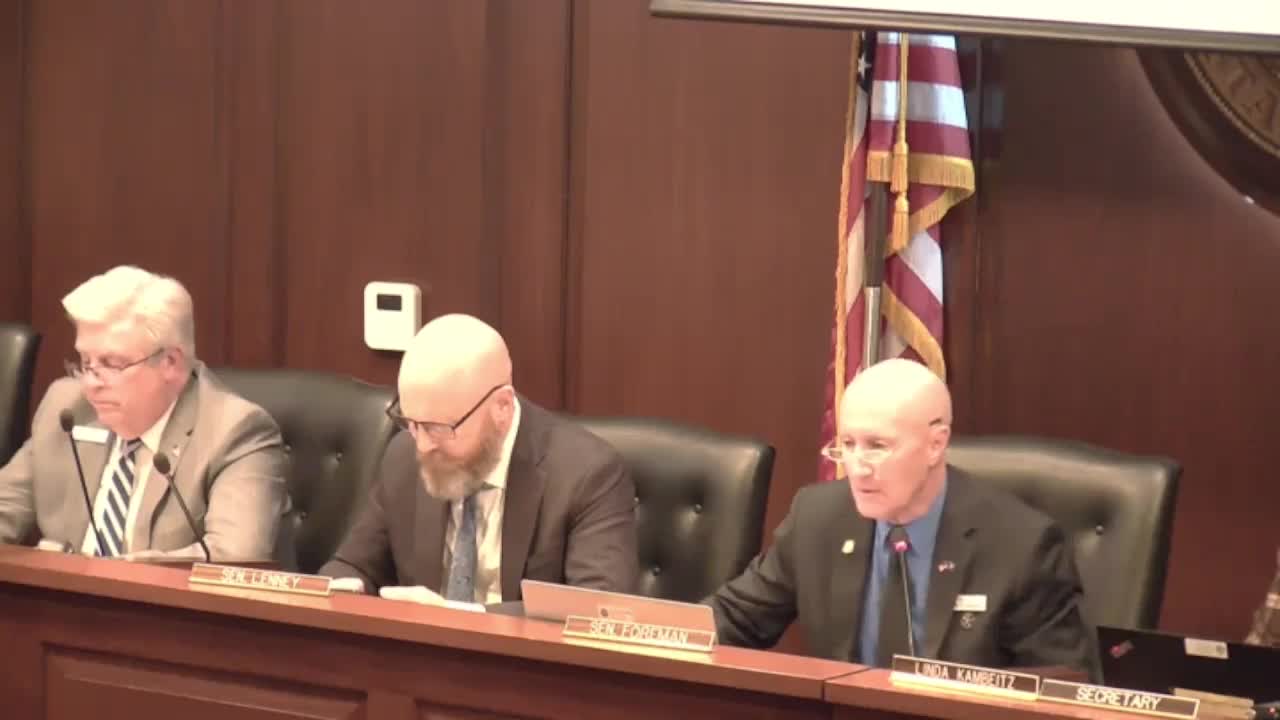Article not found
This article is no longer available. But don't worry—we've gathered other articles that discuss the same topic.

Committee backs resolution urging local governments to ease rules for youth entrepreneurship

Committee approves bill letting Secretary of State create UCC forms to fix broken links and bureaucratic inflexibility

Committee sends federalism 'states' rights' resolution on title insurance to the Senate floor

